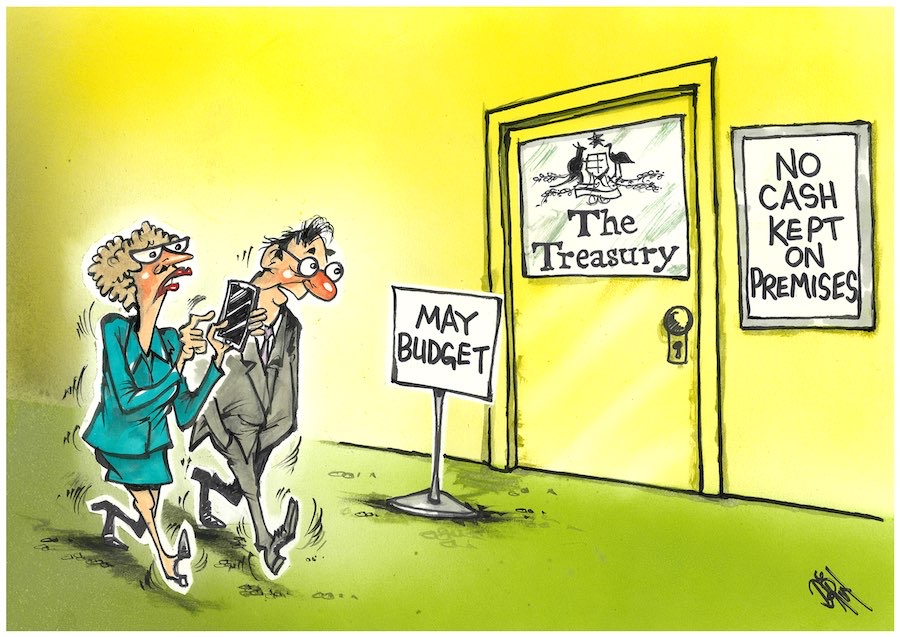
Letter writer ROS WILLIAMS says coroners too often make weak, ineffective recommendations that will change nothing. Her letter makes depressing reading.
THE findings into the death of Bronte Haskins have, after three long years, finally have made their way through the ACTs creaking, laborious, adversarial coronial system.

The coroner has decided that “no one person was to blame for Bronte’s death”, and I agree with him on that.
The findings, however, should be disturbing for all Canberrans because they clearly indicate that there were far too many times in the days just before this young person’s death when focused, planned action by any of a number of individuals working in agencies with whom she interacted, could likely have averted the tragic outcome.
At the inquest, we heard the bail and corrections officers were under resourced, the police didn’t get the right information, the PACER team wasn’t available and the MH crisis line (now called the Access Mental Health Team) triaged Bronte incorrectly. We heard “the mother” didn’t sound distressed enough on the phone, that Bronte wouldn’t speak to the team directly so she couldn’t be assessed… the list of excuses went on and on.
During my last eight years of advocacy in this area, I have attended many coronial hearings and studied many coronial findings, and I can assure you that similar lists of missed opportunities are common, and accompanied by similar lists of regurgitated excuses.
Coroners have heard this all before, but too often make weak, ineffective recommendations that will change nothing. Our elected government representatives have heard it before, too, but take little action. Highly remunerated managers leading the agencies have heard it all before and know that, ultimately, there will be very few repercussions and no accountability.
ACT taxpayers should be asking why so much of our money and the money from bereaved families is spent for so little return.
Despite legislative requirements many reasonable questions asked by families are not answered because they are supposedly “outside the scope” of the inquest.
Indeed, the scope issue often becomes a contentious one between the court and the family.
“This isn’t a royal commission,” bewildered, often intimidated families are told. For years I have wondered if it is merely a convenience for the court to limit the scope? A lazy approach to investigation? A way to more quickly work through the case backlog? Or an opportunity to avoid getting to the real truth of what actually happened?
A significant number of families whose inquest has been summarily dismissed and who then have fought for a more comprehensive investigation have eventually had, as a result, recommendations of major significance for community safety handed down by the coroner. Most families do not have the energy or confidence to take on this fight.
We should all be asking who will answer these important questions if the coroner does not?
Ros Williams OAM, Holder

Never mind tram, how about my suburb?
I AGREE with R Nano (Letters, CN Mmarch 23), who says the state of many Tuggeranong suburbs are, at best, ordinary and rightfully notes that excessive graffiti is commonplace and vandalism is increasing.
Of course, we all see both explode during school holidays. This, coupled with the near-absence of general maintenance activities (other than mowing), make the area look so tired and neglected.
The picture of the pathway between houses speaks volumes. Last week work was undertaken that included painting all over the footpaths with ridiculous signs to convey…. some sort of message, I guess?
Painting footpaths like that, in my opinion, is just a waste of money and resources when so much else has a higher priority.
My small effort to address lack of maintenance is to make sure I submit all legitimate issues via the “Fix My Street” web address as soon as I see them (lights out, damaged public seating, etcetera).
If the ACT government is going to spend gob-smacking billions on an unnecessary train, then I want to see a few dollars thrown into fixing my suburb.
I encourage everyone to report all legitimate issues in their suburb, although I know of the atrocious failure of the Fix My Street system as recently highlighted by “CityNews” (February 2) with dumping that occurred in Palmerston – so waiting goes without saying.
Bjorn Moore, Gowrie
Now I’m considered a new Australian
I WAS raised in what I believed to be one Australia and my parents impressed on me respect for our new Australians citizens.
Now I find I am myself considered a new Australian, with my family only having been here for 180 years. Nevertheless, I would like to impress on my newer, new Australian friends that I don’t claim any precedence over them, nor will I do anything other than respect and love them as my parents taught me to.
Brian O’Connell, via email
Praise for Erindale pharmacy staff
I WAS with a group of people at Erindale having our weekly get together cuppa. We all have a mental illness. This is an invisible illness, not quite like what the TV portrays.
We saw a pop-up stall to raise funds for Beyond Blue.
I would like to praise the Erindale Pharmacy staff for volunteering and cooking yummy blueberry muffins, interesting, yet delicious blue-topped cupcakes and a sausage sizzle.
All of us non-violent, non-addict, genuinely-have-this-illness, say THANK YOU!
Cam White, via email
Bus rapid transport trumps the tram
THE report of the inquiry into the economic analysis of Stage 2A of light rail was quietly released on March 21.
It provides, for the first time, the government’s estimates of the costs and benefits of Stage 2A and Stage 2B of light rail.
The government’s analysis supports its previous conclusion that bus rapid transit is a much better investment for Canberra.
In its August 2012 submission to Infrastructure Australia, the government estimated that stage 1 of bus rapid transit (between Gungahlin and Civic) would generate $230 million greater net benefits than stage 1 of light rail.
In its August 2019 “City to Woden Light Rail: Stage 2A City to Commonwealth Park Business Case” the government estimated that the combined net benefits of stage 2A and 2B of light rail (from Civic to Woden) will be more than $400 million less than the net benefits of stage 1 of light rail.
Leon Arundell, Downer
No ‘grandeur’ north of the lake
A CONCERNED Yarralumla resident spies ACT government “delusions of grandeur” in the “yellow bits” marked along Melbourne Avenue in the draft Inner South District Strategy (Letters, “Yellow bits: Looking forward to the stoush”, CN March 30).
For too many years much of the inner north, and Flemington Road, Gungahlin, have been on the receiving end of deluded and deficient design and densification development, with no evidence of grandeur whatsoever.
There is little reason to believe that this won’t worsen now that the government wants to ramp up population growth, rezoning and multi-storey built forms north of the lake, to a far greater degree than was advised previously.
However, in comparison the suburbs south of the lake will probably be treated with kid gloves and have a bit of breathing space for some time, as planning authorities stretch their limited resources and expertise and hunker down to deliver faster and far more densified residential infill “outcomes” – and little else – north of the lake.
Sue Dyer, Downer
The difficulty of better targetted taxes
LABOR’S proposal to establish a Future Fund to finance the construction of 30,000 affordable homes over five years is a drop in the bucket given the level of housing need.
The Greens and cross-benchers, including Senator David Pocock, should be commended on their attempt to secure more funding for social housing (CN, March 30).
However, the ability of the government to adequately fund the construction of social housing (or health, disability services, defence, the transition to a low-carbon economy or increase welfare payments) is limited unless the community is willing to accept increased and better targetted taxes, the reduction/removal of middle-class welfare including superannuation, negative gearing and capital gains tax concessions and first home buyer assistance.
As many voters benefit from such concessions and windfall gains from the property market such change is difficult. The difficulty is compounded by scare campaigns and the unconstructive negativity of the Coalition.
Let’s hope the Greens and the independents are successful and the government supplements the funds being made available through the Future Fund as a first step in addressing housing needs.
Mike Quirk, Garran
Who can be trusted?
In a world of spin and confusion, there’s never been a more important time to support independent journalism in Canberra.
If you trust our work online and want to enforce the power of independent voices, I invite you to make a small contribution.
Every dollar of support is invested back into our journalism to help keep citynews.com.au strong and free.
Thank you,
Ian Meikle, editor




![Teacher Vanessa Jones has been living in Higgins since 2001, and while she loves the area, she says she is “fed up” with the neglectful ACT government.
The Higgins shops have been completely abandoned, says Vanessa, preventing the opportunity for residents to have a community-centred space to socialise.
They only received bins nine months ago, she says, and requests for a water station and repairs to the bus station have gone unanswered.
“It’s very, very slow,” says Vanessa.
“I asked for the zebra crossing on Fullagar [Crescent] to be repainted, and we had to wait about six or nine months.
“That’s just such a long time… we pay a lot of rates.”
Vanessa says assistance from the government only seems to go to communities with time-rich and assertive communities, leaving places such as Higgins, where the majority of households have both adults working full-time and English may not be the first language of the family, at an automatic disadvantage.
“If you’ve got two people working, paying a mortgage, raising two or three kids, they don’t have the time,” says Vanessa.
Vanessa says the lack of attention quieter places such as Higgins is receiving is starting to look a lot like favouritism.
Read the full article on our website citynews.com.au
#canberra #canberranews](https://citynews.com.au/wp-content/plugins/instagram-feed/img/placeholder.png)
Leave a Reply